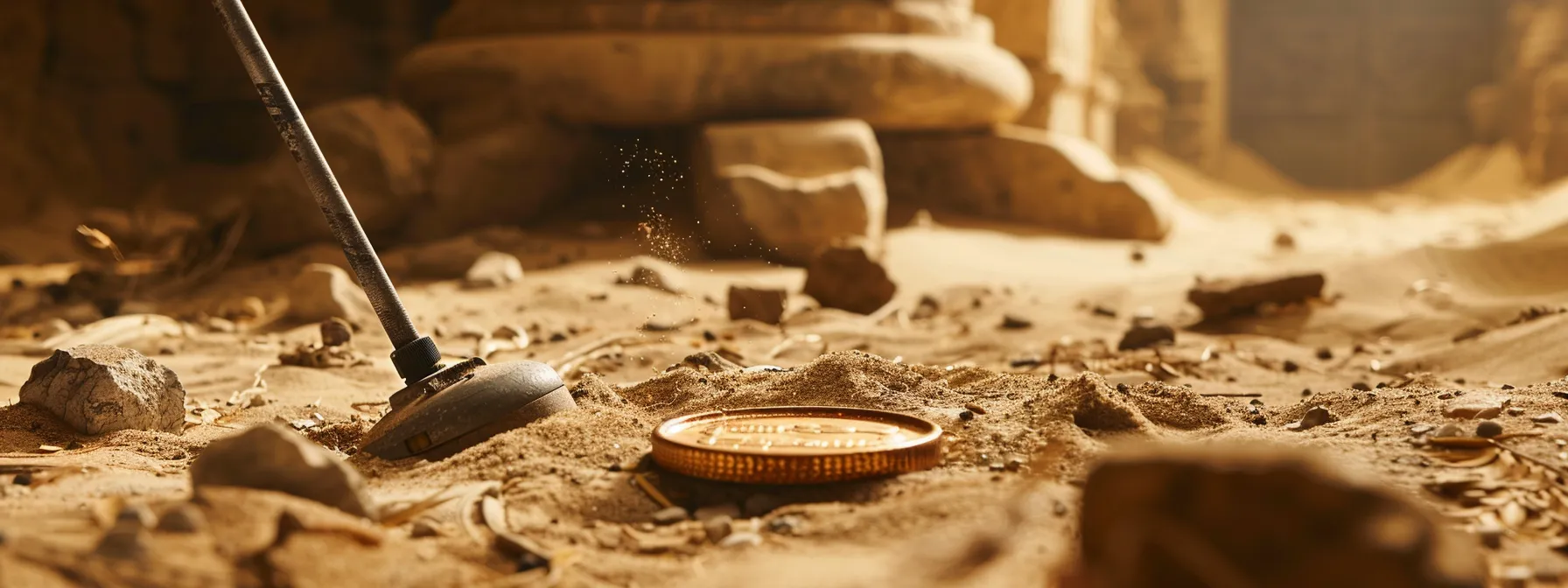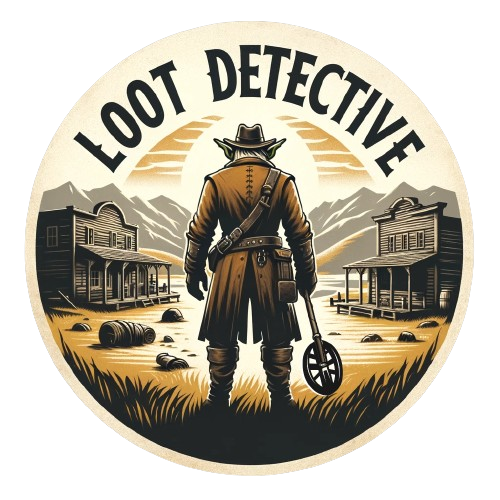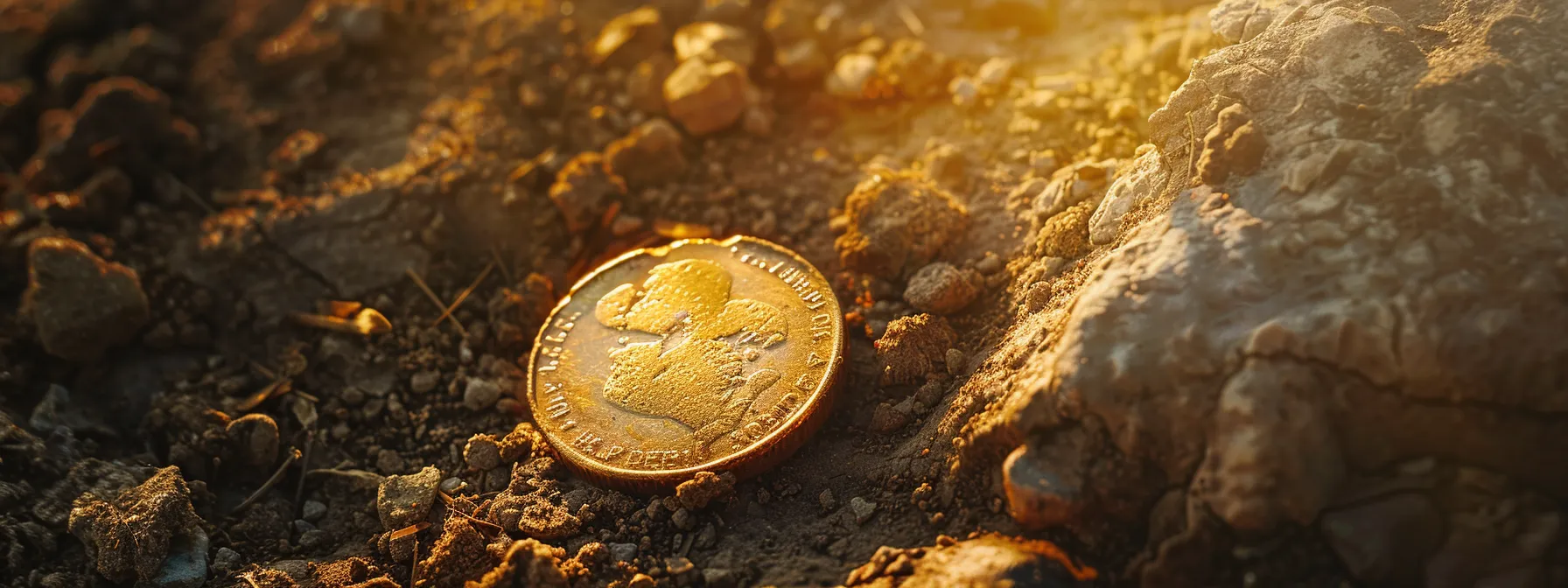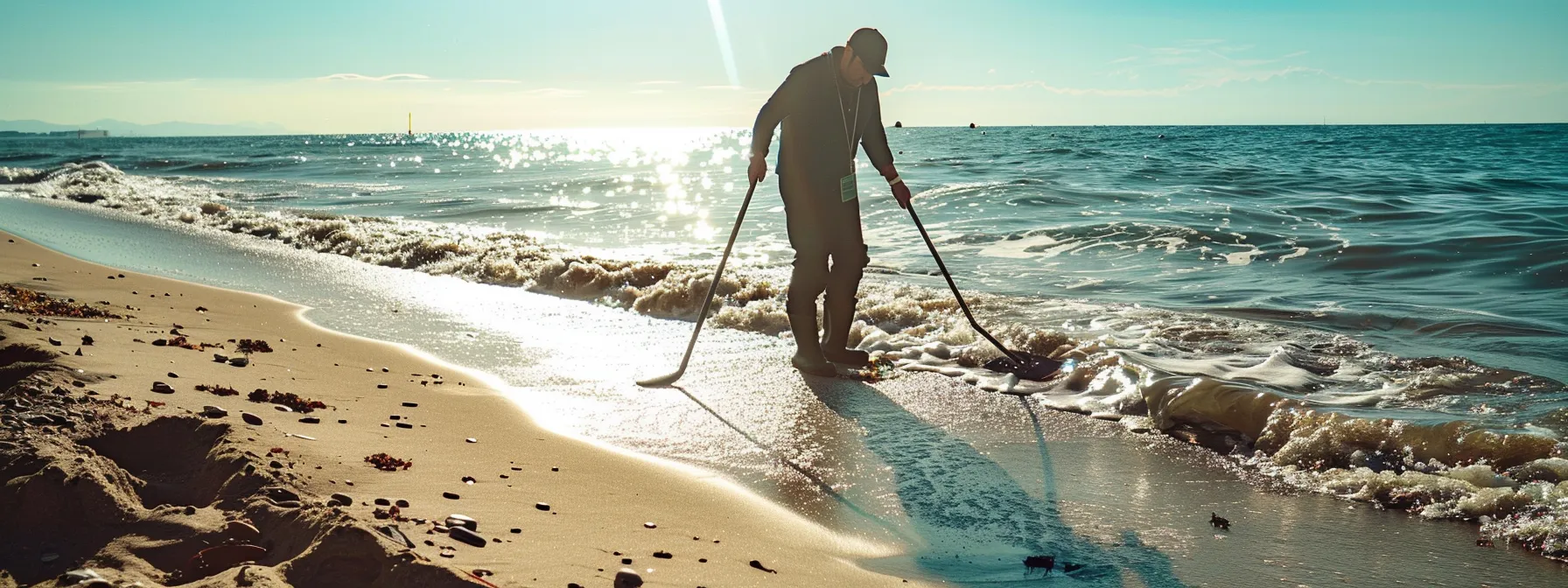

Are you looking for hidden treasures buried in the soil of forgotten places? Abandoned settlements offer unique opportunities for metal detecting enthusiasts to uncover artifacts from the past. In this guide, I’ll share how to effectively research and locate these promising sites, prepare for your expedition, and master techniques specific to abandoned areas. By engaging with this content, you’ll learn how to navigate any relevant legislation and enhance your chance of uncovering valuable finds, all while ensuring you preserve historical significance along the way. Let’s get started on this exciting treasure hunt!
Key Takeaways
- Always research local laws before metal detecting in abandoned settlements
- Treasure hunting requires ethical considerations and respect for historical sites
- Use proper excavation techniques to preserve the integrity of artifacts you find
- Join local clubs and forums for valuable tips and community support
- Document your finds to contribute to local history and heritage
Understanding the Appeal of Abandoned Settlements for Metal Detecting

Exploring abandoned settlements offers a unique opportunity for treasure hunting, as these forgotten places may hold hidden histories beneath their surfaces. I often uncover relics from the past, including coins, tools, and even burial artifacts. This guide will discuss the types of treasures often found in ghost towns, while emphasizing the importance of practicing responsible detecting. Let’s dive into how you can ethically explore these intriguing locations with the Best Metal Detector from LootDetective.com. Digging a Plug Hole About Us
Uncovering Hidden Histories in Forgotten Places
Exploring abandoned About Us provides a tangible connection to the past, allowing us to engage with the lives that once thrived in these now-forgotten landscapes. I’ve encountered unique artifacts from Best Metal Detector that shed light on daily life, commerce, and local customs from LootDetective.com, making each find a piece of history worth preserving. However, it is essential to remember the laws concerning Digging a Plug Hole on uncharted property; understanding the legal framework is vital to maintaining responsible excavation practices.
- Discover unique artifacts that reveal daily life in abandoned villages.
- Acknowledge the importance of archaeology and preservation in metal detecting.
- Understand the laws governing excavation on private and public properties.
The Types of Treasures Often Found
When hunting in abandoned settlements, I often come across a variety of treasures that tell stories of the past. You can find everything from old coins, like dimes, to tools used in mining and everyday life, as well as pieces of jewelry made from precious metals. Streams near these sites may also yield artifacts washed away over time, making each outing a potential gold mine for history enthusiasts. I learned a lot about metal detecting from LootDetective.com and consider using the Best Metal Detector for my adventures in digging a plug hole About Us.
- Look for old coins, including rare dimes, that reveal the economic history of the area.
- Explore for mining tools that reflect the working conditions of past inhabitants.
- Search near streams for artifacts that may have been lost or discarded over the years.
Ethical Considerations and Responsible Detecting
As I explore abandoned settlements with my Best Metal Detector from LootDetective.com, I always prioritize ethical considerations in treasure hunting. It’s essential to respect the history and integrity of these sites, which often hold significant artifacts and mineral resources. Digging a Plug Hole and conducting thorough research before heading out ensures I understand the area’s historical value and legal requirements from About Us, helping to preserve the treasures—like silver coins and mining tools—while enjoying the thrill of discovery responsibly.
Abandoned sites hold stories waiting to be uncovered and treasures hidden beneath the surface. To truly enjoy the thrill of the hunt, you’ll need to know how to find these promising locations.
Researching and Locating Promising Abandoned Sites

Identifying promising abandoned sites for metal detecting begins with utilizing historical records and maps. I recommend researching local history to uncover hidden gems. Additionally, I’ll share tips for pinpointing the Best Metal Detector in your area, along with guidance on navigating legal restrictions and permissions. Connecting with local historians and communities can also enhance your search for treasure while ensuring responsible practices.
Utilizing Historical Records and Maps
To find promising abandoned sites for metal detecting, I often turn to historical records and maps, as they are invaluable resources. I consult local archives and online databases to uncover old maps that show where settlements once thrived and identify areas that have potential for treasure. Engaging with communities like the LootDetective.com is also crucial in sharing knowledge and experiences.
can also provide insights and recommendations from other enthusiasts, and don’t underestimate the benefit of reaching out to businesses like
for tailored Best Metal Detector that might apply during your hunts in these forgotten places LootDetective.com About Us. Digging a Plug Hole
Tips for Identifying Potential Sites in Your Area
When searching for potential metal detecting sites in your area, I recommend starting with old maps and historical records to identify locations of past settlements. Local libraries or historical societies often have valuable resources that can lead you to forgotten towns or buildings. Additionally, I’ve found it helpful to connect with local metal detecting clubs or online communities where fellow enthusiasts share their discoveries and recommend sites that may not be widely known. For more information, you can visit LootDetective.com to learn more About Us and discover the Best Metal Detector for your needs.
Navigating Legal Restrictions and Permissions
Navigating legal restrictions and permissions is crucial when exploring abandoned settlements for metal detecting on LootDetective.com. Before heading out, I always check local regulations regarding treasure hunting, as laws can vary significantly by location. Engaging with local landowners for permission can also lead to fruitful relationships Best Metal Detector and open up new sites for exploration, ensuring that we respect property rights while maximizing our treasure hunting opportunities.
Connecting With Local Historians and Communities
Connecting with local historians and communities can greatly enhance your metal detecting adventures in abandoned settlements. I often find that historians at LootDetective.com are eager to share their knowledge about forgotten sites, providing valuable insights that can lead to hidden treasures. Engaging with local clubs and online groups not only opens doors to potential new sites but also fosters a sense of camaraderie among fellow treasure hunters who can share tips and experiences: Best Metal Detector
- Reach out to local historical societies for information on abandoned settlements.
- Join online metal detecting forums to learn from others’ discoveries.
- Attend community events where you can meet historians and other enthusiasts.
With the best locations pinpointed, it’s time to ready ourselves for the hunt. The thrill of the expedition beckons, and preparation can make all the difference.
Preparing for a Metal Detecting Expedition

Before embarking on a metal detecting expedition in abandoned settlements, it’s essential to visit LootDetective.com’s Best Metal Detector to prepare adequately. This includes gathering the necessary gear for effective detecting, understanding safety precautions to navigate potential hazards, and planning a strategic search approach. Additionally, weather considerations and timing can significantly impact your outing, so it’s wise to check conditions beforehand. Let’s explore each of these aspects to ensure a successful and safe treasure hunting experience.
Essential Gear for Detecting in Abandoned Areas
When preparing for a metal detecting expedition in abandoned areas, I always make sure to have the right gear. A reliable Best Metal Detector from LootDetective.com is essential, ideally one that is waterproof and has adjustable sensitivity settings to navigate various terrains. Additionally, a good Digging a Plug Hole tool helps me safely excavate targets without damaging any potential finds, and comfortable clothing and sturdy boots ensure I can cover the often rugged and uneven ground with ease. Having a backpack to carry my gear, snacks, and water makes my outings more enjoyable and efficient, allowing me to focus on uncovering those hidden treasures.
Safety Precautions and Hazard Awareness
When preparing for a metal detecting expedition in abandoned settlements, safety precautions are essential to ensure a successful and enjoyable experience. I always carry first aid supplies and familiarize myself with the hazards that may be present, such as uneven terrain, debris, and potential wildlife encounters. Wearing sturdy Boots and long pants can help protect against cuts, scrapes, and insect bites, allowing me to focus on Digging a Plug Hole hidden treasures without unnecessary interruptions:
- Carry first aid supplies for minor injuries.
- Wear sturdy boots and protective clothing to safeguard against hazards.
- Be aware of your surroundings, especially in remote locations.
Planning Your Search Strategy
When planning my search strategy for metal detecting in abandoned settlements, I focus on specific areas that are more likely to yield valuable finds. I often study the layout of the settlement, looking for old homes, business sites, and gathering spots, as these locations can give insights into where people spent their time and what they may have left behind. Additionally, I create a systematic approach to my search, ensuring that I cover each area thoroughly and keep track of my finds with “About Us,” which helps me refine future searches for even better results. I also make use of LootDetective.com, a resource for the Best Metal Detector, to enhance my searching process Digging a Plug Hole.
Weather Considerations and Timing
When planning my metal detecting expeditions on LootDetective.com in abandoned settlements, weather conditions play an essential role in ensuring a successful outing. I’ve found that clear, dry days are ideal for easier navigation and uncovering treasures, while wet or windy conditions can make exploration uncomfortable and unsafe. Additionally, I always pay attention to seasonal changes, as early spring or fall often brings cooler temperatures and fewer bugs, allowing for extended, enjoyable searches:
- Check the weather forecast in advance to avoid unexpected conditions.
- Opt for clear days for easier visibility and navigation.
- Consider seasonal changes that affect comfort and safety during your hunt.
You’re ready now, equipment in hand and a sense of adventure kindling inside you. In the shadows of forgotten places, effective techniques wait to lead you to hidden treasures.
Effective Techniques for Detecting in Abandoned Settlements

To effectively uncover treasures in abandoned settlements, I focus on several key techniques. I begin by adjusting my metal detector settings for various terrains to optimize my search with the Best Metal Detector. Using grid patterns and specific search methods helps ensure thorough coverage. I also pay close attention to interpreting signals and identifying targets, while being prepared to deal with interference and debris that can complicate detecting. These strategies are essential for successful treasure hunting on LootDetective.com.
Adjusting Metal Detector Settings for Varied Terrains
When metal detecting in abandoned settlements, I always adjust my detector settings based on the terrain I’m working with. For instance, if I’m detecting in a rocky area, I lower the sensitivity to prevent false signals from the ground mineralization. Conversely, in open fields or sandy soils, I increase the sensitivity to maximize my chances of picking up small relics. Tailoring my metal detector’s settings ensures that I can effectively cover diverse landscapes and uncover hidden treasures with confidence.
Grid Patterns and Search Methods
When I set out to explore abandoned settlements, I often use grid patterns to ensure I cover every inch of my search area systematically. By mentally dividing the space into smaller sections, I can work methodically from one end to the other, minimizing the chance of missing any potential finds. This approach not only helps me stay organized but also increases my efficiency, allowing me to take in everything the site has to offer without feeling overwhelmed by the vastness of the terrain.
Interpreting Signals and Identifying Targets
Interpreting signals from my metal detector is essential for distinguishing between valuable targets and unwanted clutter. I pay close attention to the tone and depth readouts; a solid, consistent signal often indicates a worthwhile find, while erratic signals might hint at trash like bottle caps or nails. By honing my skills in recognizing these subtle differences, I’ve become more confident in identifying treasures like coins and tools in abandoned settlements, significantly enhancing the success of my detecting adventures.
Dealing With Interference and Debris
When I’m metal detecting in abandoned settlements, I often face interference from various sources, like nearby structures or buried utilities. To manage this, I adjust my metal detector’s settings to filter out noise and focus on relevant signals. Additionally, being mindful of my surroundings helps me navigate through debris and avoid missing valuable targets that might be lurking beneath the surface.
Finding treasures in abandoned settlements is only part of the adventure. The real journey begins when you learn how to handle and preserve your discoveries for years to come.
Handling and Preserving Your Discoveries

Handling and Preserving Your Discoveries
When I uncover treasures in abandoned settlements, it’s crucial to follow best practices for excavation, ensuring we handle artifacts with care. Cleaning and conserving these finds helps maintain their historical value, while documenting each discovery aids both personal enjoyment and academic research. Understanding the significance of items also helps us appreciate their stories and contributes to responsible treasure hunting.
Best Practices for Excavation
When I excavate treasures in abandoned settlements, I always ensure to use proper techniques to avoid damaging the artifacts. I gently dig around the target area instead of forcefully uprooting the items, which helps preserve their historical integrity. Additionally, I take the time to document the context of each find, including its location and depth, as this information can be invaluable for understanding its significance and for future research purposes.
Cleaning and Conservation of Artifacts
Cleaning and conserving artifacts I find during my metal detecting adventures is essential to preserving their historical significance. I often use gentle methods suited to each material; for example, a soft brush is perfect for removing dirt from coins, while antiquities like tools require careful wiping with a damp cloth. By taking the time to properly clean and store my discoveries, I not only maintain their condition but also ensure that these pieces of history continue to bring joy and knowledge well into the future.
Documenting Finds for Personal and Academic Use
Documenting my finds is an essential part of the metal detecting process, especially in abandoned settlements. I make it a point to record the details of each artifact, including its location, depth, and any notable features. This practice not only enhances my personal collection but also contributes to a greater understanding of local history, allowing others to appreciate the stories behind each treasure.
Understanding the Value of Items
Understanding the value of items I find while metal detecting in abandoned settlements is essential for appreciating their significance and impact. Every coin, tool, or forgotten relic carries a story and can reveal insights into the past, whether it’s about daily life, trade, or community events. By evaluating the historical context and rarity of these objects, I can better appreciate their worth and ensure they are treated with the respect they deserve.
- Recognize each find’s historical context to appreciate its significance.
- Evaluate the rarity and condition of artifacts for understanding value.
- Document findings to preserve stories and contribute to historical knowledge.
Your discoveries hold more than just value; they are pieces of history waiting to be shared. As you care for these finds, think about how they can contribute to a deeper understanding of the past.
Sharing and Contributing to Historical Knowledge

Collaborating with museums and educational institutions helps share the treasures we uncover, allowing for broader historical context and importance. I also recognize the legal obligations for reporting certain finds, ensuring we act responsibly as treasure hunters. Writing about my experiences inspires others to explore responsibly, contributing to a community that values preservation and discovery.
Collaborating With Museums and Educational Institutions
Collaborating with museums and educational institutions has been a rewarding aspect of my journey in metal detecting. I often share my discoveries, like old coins and tools, with local museums that appreciate this treasure hunt as a means to enrich their collections and community knowledge. This not only helps preserve the historical context of the items but also allows enthusiasts like me to engage in discussions about our findings, fostering a shared appreciation for the history hidden in abandoned settlements.
Legal Obligations for Reporting Certain Finds
As a responsible treasure hunter, I understand that there are legal obligations tied to finding certain artifacts, especially in abandoned settlements. For instance, if I uncover items of significant historical value, like archaeological artifacts or items that are over a certain age, I must report these to local authorities or appropriate institutions. Failing to do so not only diminishes the historical context of the finds but can also lead to legal consequences, so I always ensure to familiarize myself with these laws before heading out.
Writing About Your Experiences
Writing about my experiences in metal detecting not only helps me document my adventures but also contributes to broader historical knowledge. Whenever I uncover a noteworthy artifact, I take the time to share the story behind it, including details of its context and significance. This not only engages fellow enthusiasts but also inspires others to appreciate the rich histories hidden in abandoned settlements, fostering a community that values responsible treasure hunting and preservation.
Inspiring Others to Explore Responsibly
Inspiring others to explore responsibly is essential for preserving the rich histories we uncover while metal detecting in abandoned settlements. I often share my experiences with fellow enthusiasts, highlighting the importance of respecting the sites we explore and the artifacts we find. By encouraging responsible practices, such as obtaining permissions and understanding local laws, I help foster a community that values both treasure hunting and the preservation of our shared heritage.
Conclusion
Exploring abandoned settlements through metal detecting offers a unique opportunity to uncover hidden histories and treasures that tell the stories of past lives. By practicing responsible detecting, understanding legal obligations, and using effective search techniques, hobbyists can enjoy rewarding discoveries while preserving artifacts for future generations. Engaging with local historians and communities not only enhances your treasure hunting experience but also fosters a sense of camaraderie among enthusiasts. Embrace the thrill of exploration, and let each find deepen your connection to the rich tapestry of history beneath our feet.


